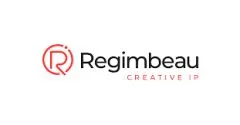Given the scale of the pharmaceutical industry's investments and the financial risks involved, it is crucial for pharmaceutical companies to seek to maximize the duration of protection for their originator medicines. To this end, several strategies are implemented, ranging from the protection of the active ingredient through patents and supplementary protection certificates, to the patenting of different aspects linked to this active ingredient, such as its production process, its formulation, its "therapeutic use", its use with other compounds or its use in a particular dosage regimen.
In this context, dosage regimen patents have long been subject of debate: was it possible to obtain protection for a new administration regimen of an active ingredient that was already known?
As we shall see, the European Patent Office (EPO) has long since given a positive answer to this question (1). French case law, meanwhile, has long held that dosage regimen inventions are excluded from patentability, but is now aligning itself with the EPO's position, which could lead to a change in INPI's practice (2). Finally, there is the question of the future position of the Unified Patent Court (UPC) on this point.
1. Patentability of dosage regimen claims before the EPO
European legal basis
Before the EPO, the patentability of second therapeutic applications is governed by Articles 53c) and 54(5) of the European Patent Convention (EPC).
Article 53c) EPC states that "European patents shall not be granted in respect of: (...)
c) methods for treatment of the human or animal body by surgery or therapy (...), this provision shall not apply to products, in particular substances or compositions, for use in any of these methods".
Article 54(5) EPC states that, even if a substance or composition is already known for a first medical use, it remains patentable for any subsequent use in a method referred to in Article 53c), provided that this use is new and involves an inventive step.
But does a method defining a particular dosage regimen of a substance or composition for the treatment of a disease for which the use of this substance or composition is already known constitute a subsequent use within the meaning of Article 54(5) EPC?
A major step forward: the G2/08 decision
After several divergent decisions, the situation became clearer in 2010 with the decision of the Enlarged Board of Appeal G2/08. This ruled that the subsequent use of Article 54(5) EPC is not limited to a new indication of the substance or composition. It follows that the grant of a patent should not be excluded "where a dosage regime is the only feature claimed which is not comprised in the state of the art".
Thus, according to the Enlarged Board of Appeal, "there is no reason to give to a feature consisting in a new dosage regime of a known medicament a different treatment than the one given to any other specific use acknowledged in the case law".

It is essential, however, that the claimed dosage regimen reflects a technical teaching that differs from the state of the art, and is typically associated with an unexpected technical effect compared to previously known treatment methods. The existence of the latter will be assessed in concreto. For example, it has been held that "dose determination for medical purposes is generally considered to be a routine task for a person skilled in the art" (T 1791/22). By contrast, in Case T 0799/16, inventive step was recognized because of the apparent complexity and likelihood of success of clinical trials in the field of multiple sclerosis.
So, even if inventive step of new dosage regimens may remain difficult to demonstrate, it has been clear for 15 years now that dosage regimen claims can be patented before the EPO.
2. Patentability of dosage regimen claims in France
The national legal framework
In France, the situation remained unclear for much longer.
Patentability of second therapeutic applications is governed by Articles L611-11 and L611-16 of the French Intellectual Property Code (CPI), in terms very similar to those of the EPC.
Article L611-16 CPI states that "methods of surgical or therapeutic treatment of the human or animal body (...) shall not be patentable. This provision does not apply to products, in particular substances or compositions, for the implementation of one of these methods".
Article L611-11 CPI specifies that, when a substance or composition is already known for a medical use, a claim concerning a different use, which is not described in the state of the art, is patentable.
A long history of unfavorable case law
Until the late 2010s, however, the majority of French case law held that dosage regimen claims were not patentable. For example, the Paris TGI held that "the French national courts are not bound by the EPO, which is not a court ... so that these decisions, even those handed down by the Enlarged Board of Appeal, are merely indications of what the EPO analyzes in order to grant European patents". Accordingly, the dosage regimen claims were excluded from patentability because they were "a therapeutic method excluded from patentability because it belongs to the field of health care and depends on the only freedom and concomitant responsibility of each doctor" (TGI Paris, Sept. 28. 2010, 07/16296, Actavis Groupe c/ Merck Sharp Dome; see also TGI Paris, Sept. 21, 2010, 09/12713, Teva Santé c/ Merck Sharp Dome; TGI Paris, Dec. 5, 2014, 2012/13507, Azko Nobel c/ Teva Santé).
Change of course: recent French case law
However, since the early 2020s, this trend has been reversed.
In a recent decision (Cass. com., August 30, 2023, no. 20-15.480), the French Supreme Court stressed the importance of a convergent interpretation of European and national texts. Consequently, product claims limited to a specific use must be interpreted by the INPI in the same way as the EPO, i.e. following the reasoning of the G2/08 decision.
Strictly applying this principle of convergence, the Paris Court of First Instance ruled in a first decision that dosage regimen inventions are patentable (TJ Paris, March 28, 2024, RG: 22/08612). The Court recalled that "dosage regimen inventions are accepted by the Cour de cassation and the EPO Board of Appeals, including for the treatment of the same disease (Cass. Com. December 6, 2017 15-19.726, EPO Board of Appeals Enlarged Board, February 19, 2010, G2/08)".
In a second decision, the Court closely followed the reasoning of the Enlarged Board of Appeal in case G2/08, concluding that inventions relating to dosage regimen, administration or combination of treatments are new provided that the medical use of the product is new: "as regards the type of therapeutic application likely to be new, there would be no justification for freezing the analysis by a list of pre-established categories, and in the same way as it is accepted that a dosage regimen or mode of administration is likely to be new (see again G2/08), a combination application may also be new. " (TJ Paris, Oct. 20, 2023, 19/13662).
Persistent obstacles despite the opening of the courts
However, in each of these two decisions, the patent was revoked on the grounds of insufficient description due to failure to demonstrate the therapeutic effect associated with the claimed dosage regimen in the first, and on the grounds of lack of inventive step of the claimed dosage regimen in view of the prior art in the second, recalling the difficulty of protecting new dosage regimens by patent (in this respect, see also TJ Paris, Oct. 6, 2022, 22/55799).
Furthermore, the French courts' approach does not yet seem to be followed by the INPI, which still rejects dosage regimen claims under examination as relating to methods of surgical or therapeutic treatment of the human or animal body, excluded from patentability under Article L611-16 CPI. It is to be hoped, however, that this situation will soon come to an end, and that the Institute will bring its practice into line with current French court case law.
Finally, there is the question of the attitude the UPC will adopt towards these claims: will it follow the EPO's position, as one might hope, or will it develop a new approach? Only time will tell.
Strategic support by Regimbeau in the field of dosage regimen patents
Regimbeau leverages its expertise to assist stakeholders in the pharmaceutical industry in securing protection for their innovations, with particular focus on the complex issues surrounding the patentability of dosage regimen claims—from patent filing strategies to the enforcement and defense of their rights in France and internationally.
The content of this article is intended to provide a general guide to the subject matter. Specialist advice should be sought about your specific circumstances.


